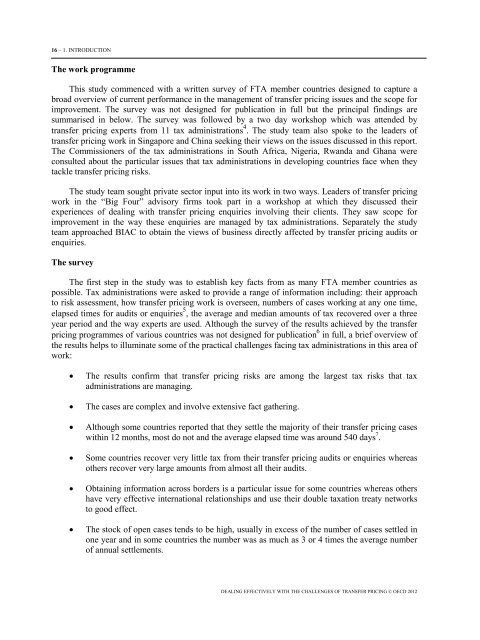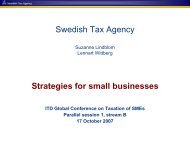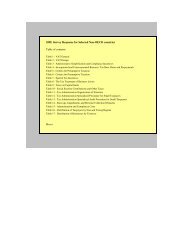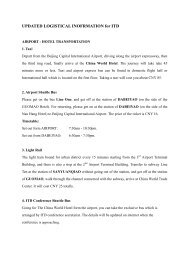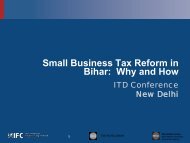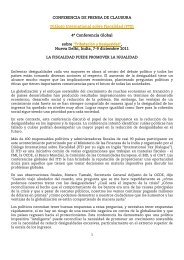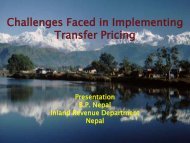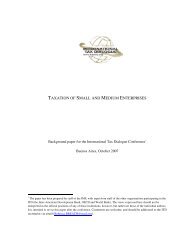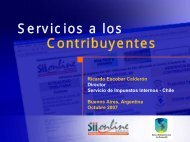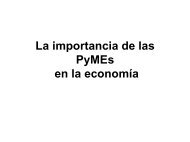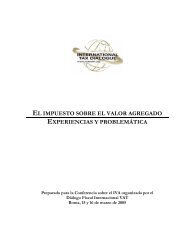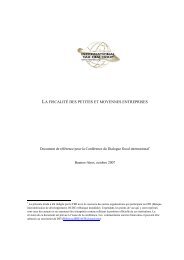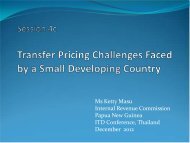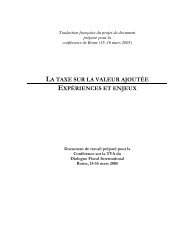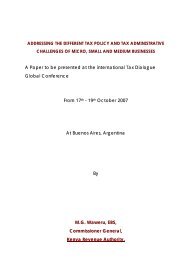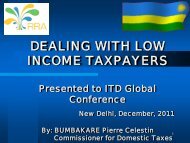Arcotia Hatsidimitris - International Tax Dialogue
Arcotia Hatsidimitris - International Tax Dialogue
Arcotia Hatsidimitris - International Tax Dialogue
You also want an ePaper? Increase the reach of your titles
YUMPU automatically turns print PDFs into web optimized ePapers that Google loves.
16 – 1. INTRODUCTION<br />
The work programme<br />
This study commenced with a written survey of FTA member countries designed to capture a<br />
broad overview of current performance in the management of transfer pricing issues and the scope for<br />
improvement. The survey was not designed for publication in full but the principal findings are<br />
summarised in below. The survey was followed by a two day workshop which was attended by<br />
transfer pricing experts from 11 tax administrations 4 . The study team also spoke to the leaders of<br />
transfer pricing work in Singapore and China seeking their views on the issues discussed in this report.<br />
The Commissioners of the tax administrations in South Africa, Nigeria, Rwanda and Ghana were<br />
consulted about the particular issues that tax administrations in developing countries face when they<br />
tackle transfer pricing risks.<br />
The study team sought private sector input into its work in two ways. Leaders of transfer pricing<br />
work in the “Big Four” advisory firms took part in a workshop at which they discussed their<br />
experiences of dealing with transfer pricing enquiries involving their clients. They saw scope for<br />
improvement in the way these enquiries are managed by tax administrations. Separately the study<br />
team approached BIAC to obtain the views of business directly affected by transfer pricing audits or<br />
enquiries.<br />
The survey<br />
The first step in the study was to establish key facts from as many FTA member countries as<br />
possible. <strong>Tax</strong> administrations were asked to provide a range of information including: their approach<br />
to risk assessment, how transfer pricing work is overseen, numbers of cases working at any one time,<br />
elapsed times for audits or enquiries 5 , the average and median amounts of tax recovered over a three<br />
year period and the way experts are used. Although the survey of the results achieved by the transfer<br />
pricing programmes of various countries was not designed for publication 6 in full, a brief overview of<br />
the results helps to illuminate some of the practical challenges facing tax administrations in this area of<br />
work:<br />
• The results confirm that transfer pricing risks are among the largest tax risks that tax<br />
administrations are managing.<br />
• The cases are complex and involve extensive fact gathering.<br />
• Although some countries reported that they settle the majority of their transfer pricing cases<br />
within 12 months, most do not and the average elapsed time was around 540 days 7 .<br />
• Some countries recover very little tax from their transfer pricing audits or enquiries whereas<br />
others recover very large amounts from almost all their audits.<br />
• Obtaining information across borders is a particular issue for some countries whereas others<br />
have very effective international relationships and use their double taxation treaty networks<br />
to good effect.<br />
• The stock of open cases tends to be high, usually in excess of the number of cases settled in<br />
one year and in some countries the number was as much as 3 or 4 times the average number<br />
of annual settlements.<br />
DEALING EFFECTIVELY WITH THE CHALLENGES OF TRANSFER PRICING © OECD 2012


